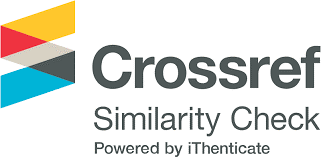Isolated Single-phase High Power Factor Rectifier Using Zeta Converter Operating in DCM With Non-Dissipative Snubber
DOI:
https://doi.org/10.18618/REP.2014.4.423429Keywords:
AC-DC converter, Discontinuous Conduction Mode, High-Frequency Insulation, Power Factor Correction - PFC, Single-Stage, Zeta ConverterAbstract
This paper presents the study of a single-stage, single-phase, unity power factor converter, isolated by a high frequency transformer, based on a Zeta converter operating in discontinuous conduction mode (DCM). The main feature of the proposed converter is its ability to naturally emulate an apparent resistance to the ac input source, without current sensor or current controller. Circuit operation, theoretical analysis and design example are included in this paper, along with experimental results taken from a laboratory prototype rated at 400W, input voltage equal to 127 V, output voltage equal to 200 V, switching frequency of 25 kHz and efficiency of 92 %. In order to reduce the commutation losses and limit the peak voltage across the power semiconductors, a non- dissipative snubber has been included in the laboratory prototype. With the advent of new low losses power semiconductor technologies, such as SiC and GaN, power converters operating in DCM will become very attractive, due to their simplicity and robustness, even for high power applications. This is the main motivation of the study presented hereafter.
Downloads
References
K. De Gusseme, David M. Van De Sype, AP.M. Van denBossche, J.A. Melkebeek, "Digitally controlled boost power-factor-correction converters operating in both con-tinuous and discontinuous conduction mode"IEEETransactions on Industrial Electronics, vol. 52, no.1,pp.88-97, Feb 2005. https://doi.org/10.1109/TIE.2004.841133 DOI: https://doi.org/10.1109/TIE.2004.841133
R. Ghosh, G. Narayanan,"A Single-Phase Boost Rectifier System for Wide Range of Load Variations" IEEE Transactions on Power Electronics, vol. 22, no.2,pp.470-479, March 2007. https://doi.org/10.1109/TPEL.2006.890011 DOI: https://doi.org/10.1109/TPEL.2006.890011
A. Peres, D.C. Martins, I. Barbi,"ZETA converter applied in power factor correction" In Power Electronics Specialists Conference, PESC '94 Record., 25th Annual IEEE, pp. 1152-1157 vol.2, Jun 1994.
M.J. Bonato, C. A. Canesin, "Retificador Zeta ZCS-PWM abaixador de tensão com elevado fator de potência", Eletrônica de Potência, pp.32-39, vol.5, Nov 2000. https://doi.org/10.18618/REP.2000.2.032039 DOI: https://doi.org/10.18618/REP.2000.2.032039
G. Tibola, I. Barbi, "A single-stage three-phase high power factor rectifier with high-frequency isolation and regulated DC-bus based on the DCM SEPIC converter"In2011 IEEE International Symposium on Circuits andSystems (ISCAS), pp. 2773-2776, May 2011. https://doi.org/10.1109/ISCAS.2011.5938180 DOI: https://doi.org/10.1109/ISCAS.2011.5938180
AJ. Sabzali, E.H. Ismail, M.A Al-Saffar, AA. Fardoun,"New Bridgeless DCM Sepic and Cuk PFC Rectifiers With Low Conduction and Switching Losses" IEEE Transactions on Industry Applications, vol. 47, no.2,pp.873-881, March 2011. https://doi.org/10.1109/TIA.2010.2102996 DOI: https://doi.org/10.1109/TIA.2010.2102996
I. Barbi, D.C. Martins,Conversores CC-CC Básicos Não-Isolados, volume 3 Edição Revisada Edição do Autor, Florianópolis, Brasil, 2008.
Downloads
Published
How to Cite
Issue
Section
License
Copyright (c) 2014 Revista Eletrônica de Potência

This work is licensed under a Creative Commons Attribution 4.0 International License.















